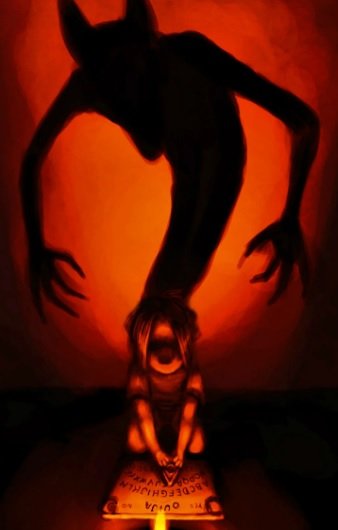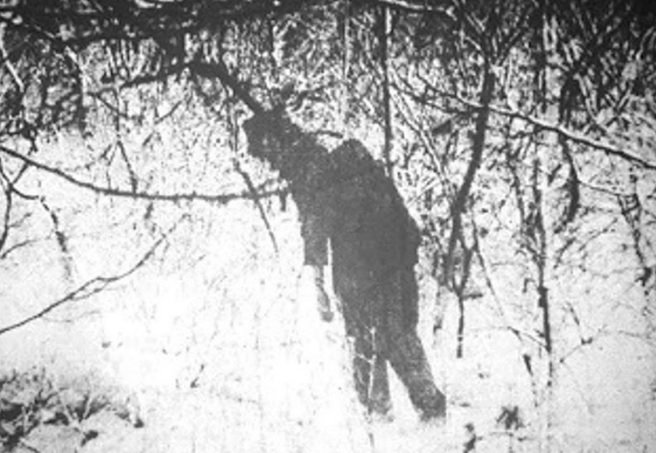General
Life After Death: PhD François Lallier Conducted A Huge Study Of Near-Death Experiences
French publication Medscape interviewed him to find out why the doctor, who is neither a priest nor a mystic, made this unconventional – some would say “daring” – choice.
When asked by journalists about where Francois Lallier got the idea to write a dissertation on near-death experiences, the doctor replied that one evening in 2012, when he was in his seventh year of medical school, he was watching TV and came across a documentary about near-death experiences.
“I have already heard a little about them, about the tunnel, about the light and so on. But when I watched the program, I was struck by similar elements, similarities in people’s stories. And the fact that there were so many scientists investigating this experience also intrigued me. I said to myself, “Wouldn’t it be great to write a dissertation in general medicine about near-death experiences in cardiac arrest survivors?” – shared the interlocutor of the publication.
As a result, the doctor of sciences conducted a retrospective study that lasted a year and a half. During all this time, he reviewed about 300 cases of cardiac arrest patients who were successfully treated at the Reims University Hospital between 2005 and 2012. As a result, a group of people was selected with whom the doctor wanted to talk.
“But from a medical point of view, what is particularly interesting in these specific cases is that cardiac arrest stops blood flow to the brain. Thus, these patients should not be able to form or even have any memories of it,” the expert explained.
Of the approximately 300 patients, the doctor was able to talk to 118. The group consisted mostly of men (69%), with an average age of 54 years. The median time since their cardiac arrest was 55 months. The doctor asked these people to answer questions on the Grayson NDE scale.
In addition, he collected information about their level of education and their possible near-death experience or their knowledge of the subject. In the end, the researcher stumbled upon something that had never been taken into account: the patient’s medical and surgical history.
Perhaps, he noted, an explanation could be found in their state of health before the near-death experience. So Lallier went through the files and noted each patient’s medical and surgical history, the medications they were taking, the cause and duration of the cardiac arrest, the methods used to resuscitate them, the medications used during resuscitation.
As a result, of the 118 people the doctor spoke to, 18 may have had a near-death experience. This is 15.3%, which is consistent with the figures found in the literature. The specialist proceeded from the premises that if it were a hallucination, then most likely one could find a psychiatric basis for this in the person’s medical history, and that if it was associated with an epileptic seizure, then this type of experience would be more often observed in people suffering from this neurological disorder.
However, the results showed just the opposite. In other words, people with a history of psychiatric or neurological problems actually had fewer near-death experiences than those who didn’t. Meanwhile, there were more cases of near death among people with a history of respiratory, endocrine and rheumatic diseases. And, in general, patients who took medication were less likely to have a near-death experience.
One of the theories that Lallier put forward in his dissertation is that everyone who experiences cardiac arrest has a near-death experience, but not everyone remembers it.
It can be said that when it comes to the brain, the more “damaged” it is due to neurological or psychiatric disorders, treatments, or memory-impairing conditions, the fewer reports of near-death experiences. This is consistent with the findings that 60% of children experience similar experiences compared to 15-20% of adults.
When asked that NDEs are often explained by the release of neurotransmitters, Lallier replied that these arguments are based on experiences caused by psychedelics. Yes, the researcher said, they cause sensations and visions similar to those described by patients who have experienced a near-death experience – a feeling of unconditional love, a vision of beings of light. But it’s still just a theory, the Ph.D. assured.
“And even if it turns out that DMT occurs naturally in the human body, this will not ‘explain’ everything. For example, how is it that near-death experiences can occur in circumstances where a person is not “close to death”, for example, in a state of pure relaxation or when a person feels completely one with another,” said the doctor.
Thus, concluded François Lallier, if there is an event in the patient’s history that could lead to a near-death experience, the doctor should start this discussion and conduct this conversation without any skepticism or criticism. And who knows? They may even be surprised by what they hear. They may even come up with their own theories about the phenomenon.
General
Experts Declare Experimental Cancer Vaccine Based On mRNA Technology Is ‘Safe and Effective’

A new cancer vaccine based on Covid mRNA vaccine technology
which has yet to be clinically tested has already been declared “safe
and effective” by the British government.
Known as ‘LungVax’,
the new vaccine is being developed by the University of Oxford, the
Francis Crick Institute and University College London, and is expected
to be the first of a huge range of new cancer vaccinations available in
the near future.
Research scientists developing the ‘groundbreaking’ lung cancer
vaccine claim it will be effective in preventing up to 90 per cent of
cases by training the immune system to locate and attack early signs of
disease.
Lung cancer cells look different from normal cells due to having ‘red
flag’ proteins called neoantigens. The LungVax vaccine will carry a strand of DNA which trains the immune system to recognize these neoantigens on abnormal lung cells.
It will then instruct the immune system to destroy these cells and stop lung cancer.
Professor Tim Elliot, lead researcher at the University of Oxford, said: ‘Cancer
is a disease of our own bodies and it’s hard for the immune system to
distinguish between what’s normal and what’s cancer.
‘Getting the immune system to recognize and attack cancer is one of the biggest challenges in cancer research today.”
Elliot admitted the new vaccine is based on technology used to create the Covid vaccine.
‘This research could deliver an off-the-shelf vaccine based on
Oxford’s vaccine technology, which proved itself in the Covid pandemic.
Remarkably, given the disastrous health consequences for those
vaccinated with the experimental Covid vaccines, Eilliot praised the
mRNA roll out as a success.
‘If we can replicate the kind of success seen in trials during
the pandemic, we could save the lives of tens of thousands of people
every year in the UK alone.’
Researchers have been granted up to £1.7 million from Cancer Research UK and the CRIS Cancer Foundation.
The team will receive funding for the study over the next 2 years to
support lab research and initial manufacturing of 3,000 doses of the
vaccine at the Oxford Clinical BioManufacturing Facility.
If successful, the vaccine will move straight into a clinical trials,
involving those at biggest risk of disease, such as current and former
smokers who currently qualify for targeted lung health checks in some
parts of the UK.
General
TV Host Demands Gov’t ‘Take Control’ of Elon Musk’s X To ‘Shut Down’ Conspiracy Theories

Elon Musk’s X must be “shut down” by government because dangerous “conspiracy theories” are spreading on the social media platform, according to British TV host Jeremy Vine.
“If there any argument to say, and this will sound crazy, but
China does it, we’ve got to now take control of Twitter and shut it down
for the time being,” said Vine.
Vine made the comments earlier this week during a heated debate
regarding speculation surrounding the health and whereabouts of Kate
Middleton, the Princess of Wales.
Boomers have become obsessed with speculating that Middleton has died or is severely unwell and that the Royal Family is hiding it because she hasn’t been seen in months after an operation.
The manipulation of a series of photo of Middleton and her children also only served to fuel the rumors, as some sources close to the princess claimed she had been murdered by the royal family.
However, instead of dismissing the whole issue for what it is, a pointless distraction that will disappear once Middleton makes a public appearance around Easter, Vine called for draconian measures.
Modernity report:
Ah yes, the Communist dictatorship of China, which shuts down the Internet to clamp down on dissent and enhance its repression of undesirables.
That’s definitely who we should be mimicking, Jeremy.
Throughout the COVID pandemic, Vine’s show was a platform for some of the most vulgar, authoritarian drivel imaginable.
One show asked if children who are unvaccinated should be banned from schools or made to wear special badges.
Another asked, “Is it time to ban the unvaccinated from traveling?”
Vine has made a name for himself as being a dutiful amplifier of regime messaging, while his annoying side hobby of biking around London looking to film confrontations with motorists has also angered many.
-

 Ghosts2 years ago
Ghosts2 years agoZozo: The Ouija Board Demon
-

 Space2 years ago
Space2 years agoScientists claim to have found the answer what existed before the Universe
-

 Ghosts2 years ago
Ghosts2 years agoOld Coot of Mount Greylock
-
Archaeology1 year ago
New discoveries at Ekʼ Balam during conservation works
-

 General3 years ago
General3 years agoUC San Francisco engaging in horrifying experiments, organ harvesting of live babies in the name of “science”
